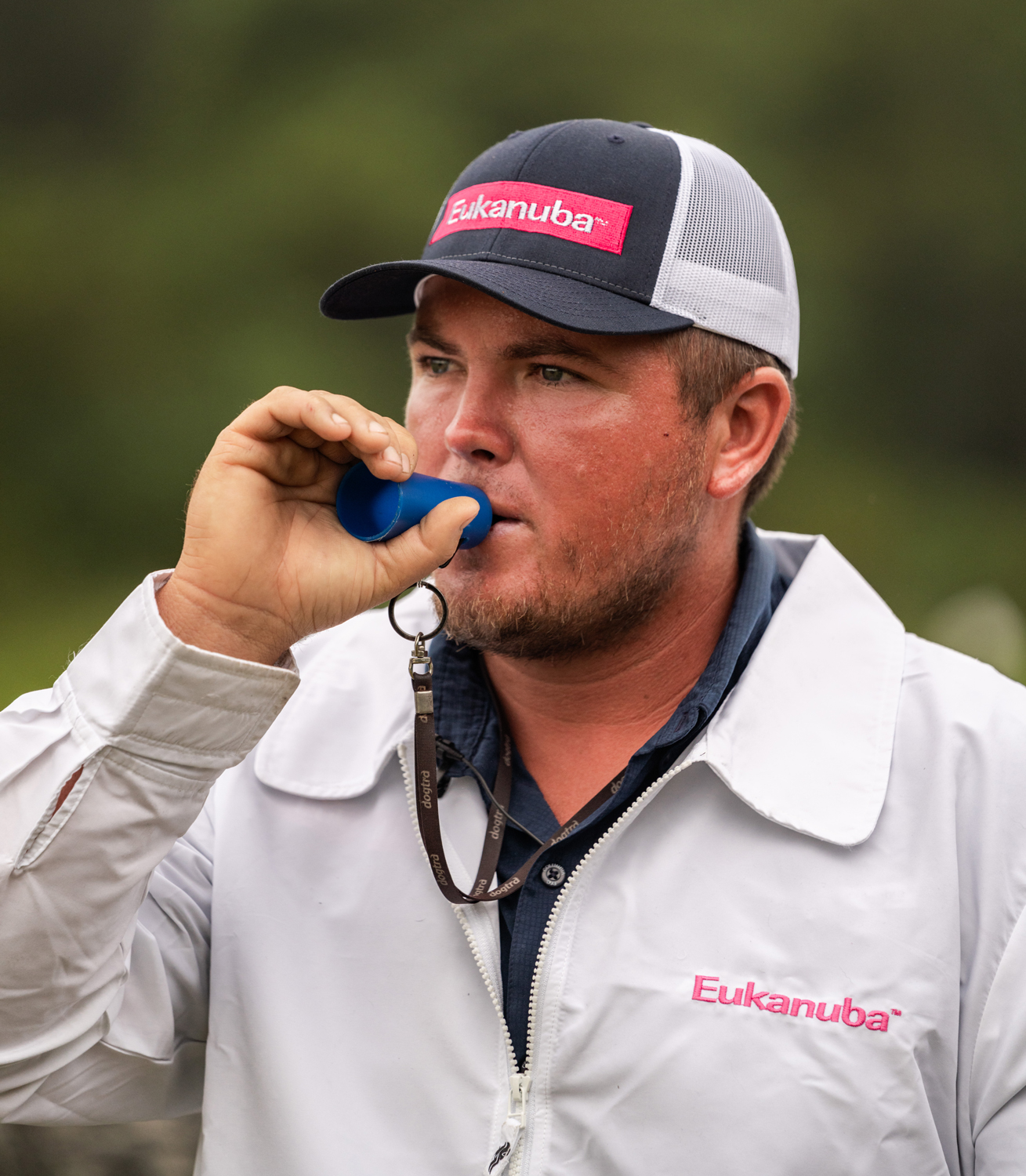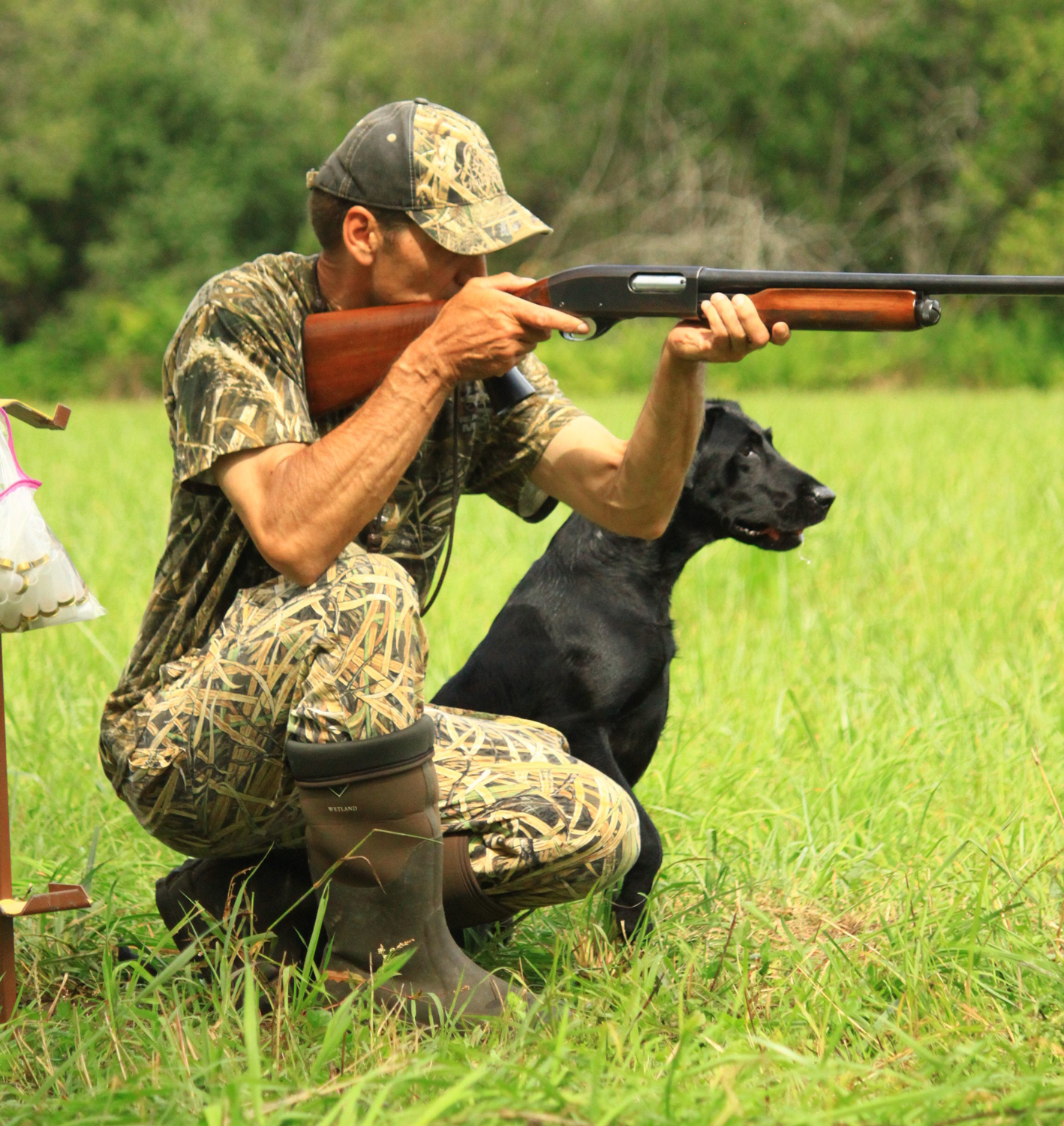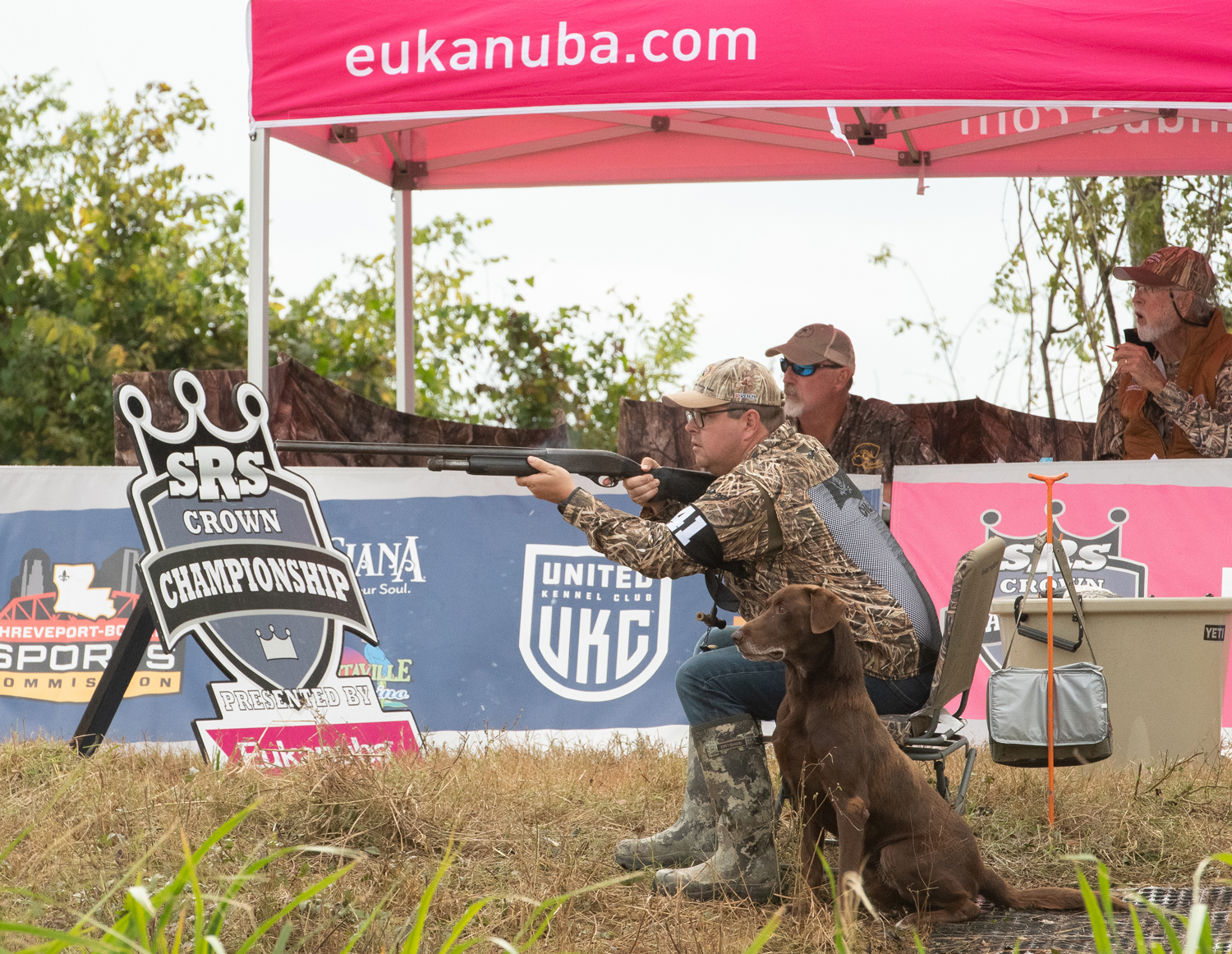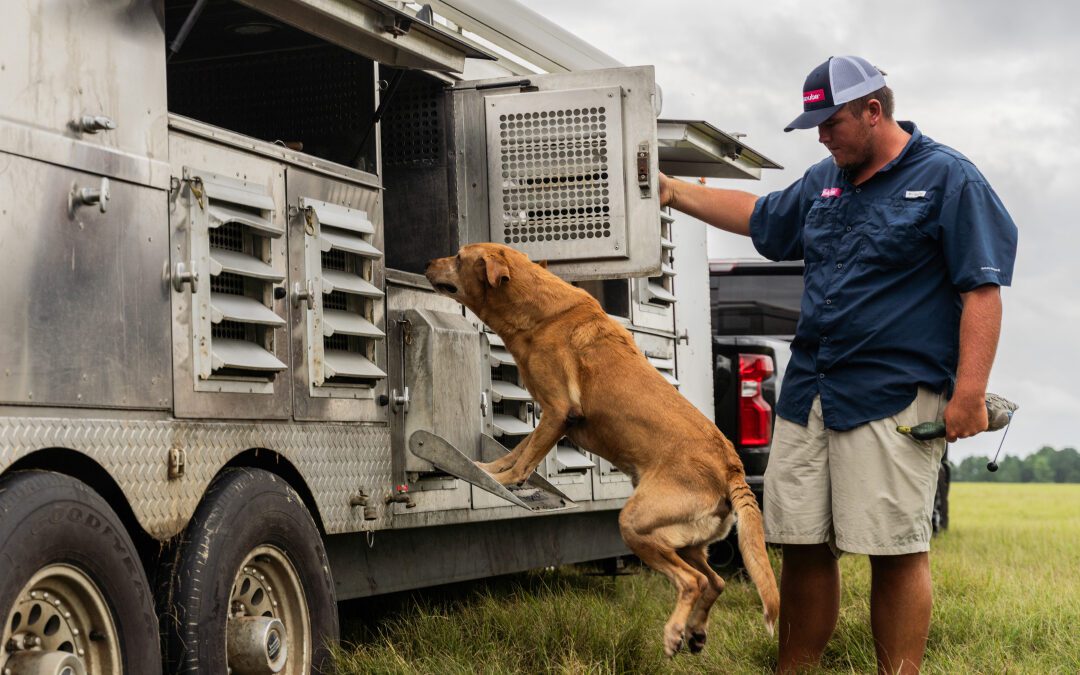Spring rains in southeastern Georgia can be either a blessing or a curse. If they’re cold, then handlers running Labs will need a lot of layers to knock down the chill. If they’re warm, then the heat combined with high water levels will bring out the water moccasins. An extra jacket is one thing, but no joy comes from a venomous snake bite.

Carter Turner doesn’t let the weather, snakes or even a case of nerves get in the way of his training. The 28-year-old pro trainer out of Patterson, Georgia’s, Mossy Pond Retrievers has a 25-dog string to run. Their hard work paid off this past October, for not only did Turner win the Super Retriever Series Crown Championship with a dog named Cappy, but he also took third place with his Lab, Shooter, and fifth place with Zeus.
In terms of competitive dog activities, the Super Retriever Series (SRS) is a newcomer. Launched in 2002 as an official qualifier to the Great Outdoor Games, the innovative and creative Shannon Nardi was working with ESPN on its production of the Great Outdoor Games. “Back in the past millennium, those ESPN shows were the best way to bring together people who enjoyed competing in a wide variety of outdoor sports,” she said. “Events focused on bass and fly-fishing, shooting sports, dog events like agility, fly ball, dock diving and retriever games.
“The 2000 games were televised, and they were such a hit that JM Associates, a production crew out of Little Rock, Arkansas, was tasked with elevating the retriever events. Field trials and hunt tests had been around for a long while, so retriever organizers created a hybrid game that asked a retriever to do it all.
“The SRS is part field trial, part hunt test and part real time hunting situations, all of which challenge a dog to be the very best. Dogs that can win at all three are among the best damn dogs in the country. And it’s really hard to believe that we started a quarter of a century ago.”

Ken Kalil, now of Kalil’s Upstate Outfitters, in Lake Placid, New York, was around at the beginning. “In the late 1990s I was working for a fishing and hunting shop called Jones Outfitters,” he said. “I remember talking about the new event with retriever organizers such as JM Associates’ Jerry McKinnis, Shannon Nardi and a number of other folks.
“We all thought the SRS was a great idea, especially because all pro and amateur handlers wanted more information about dogs and training. Seeing Barry Lyons, Jerry Day and other successful Hunting Retriever Club trainers running Labs in the flat area below the 1980 Winter Olympic ski jump was nothing short of amazing. Shannon and her team got everyone excited. Now, those SRS Champion titles are as relevant as any others in the business.”
What makes the SRS so challenging is that each dog has to accumulate points in each of the three following categories:
Field Trial: Handlers wear white coats at the line and white-coated bird boys throw marks and blinds. Dogs are running blinds at 300 yards and diversions at 200 yards.
Hunt Test: Handlers wear camo, black or tan, with marks being accompanied by either a shot from the line or a shot from the field. Distances are to exceed 175 yards.
Hunt Savvy: Handlers wear camo or hip boots/waders and dogs run out of layout blinds, boats or stands as well as through large decoy spreads.
From the beginning, SRS had a loyal following. “Initially we ran six to seven events per year, but now we’re at 30 events across 32 open weekends,” Nardi said. “Qualifying events start after the end of duck season, and they all culminate in the Super Bowl of hunting dog competitions, the SRS Crown Championship. Our rules and regulations have increased from one page of rules to our current 20 pages, and we also added SRS University.

“SRS University is a competitive event run at participating high schools and colleges across the country. Students work with coaches who supply gear, training methodologies and even dogs. Every year we have new schools coming online, and they’re a lot of fun. It’s also a way to give back and to ensure that the dog sports we love are supported by the next generation.”
Carter Turner started running SRS events last year. “I’d been around dogs my whole life and have been working with them for more than a decade,” he said. “Last year I knew I had some talented dogs and figured that, if I did my job, then we’d have a shot at winning.
“In the beginning, I was so nervous that I nearly chewed my whistle in half. We’re a team, and I didn’t want to be the one to make the mistake. Things smoothed out about halfway through and, by the time I got to the Crown, I was ready to go.
“We all put in our time from the early season when it was cold and raining through the summer heat. Winning was a rush, especially because I felt that all of our hard work paid off. The celebration didn’t last too long, though, because we had to get right back to work and to start preparing for next year.”
Turner won more than three of the top five places in the Crown Championship. He also won the Eukanuba Team of the Year award with three of his dogs—Shooter, Cappy and Smack.
The SRS attracts folks who are new to the sport or those like Turner who have been around dogs their whole life. “My uncle was a professional waterfowl guide,” he said, “so I’ve always been around dogs. I started working at Mossy Pond Retrievers when I got done playing football, basketball and baseball in school. I like team sports and competition, so I guess I naturally kind of gravitated towards hunt tests, field trials and the SRS. I’m on the road for nine months of the year, and sometimes that’s hard. But finding ways to bring out a dog’s genetic abilities and to shine enough to win makes it all worthwhile.”

